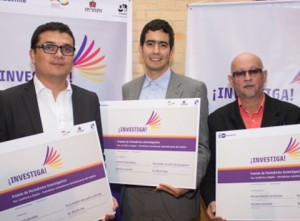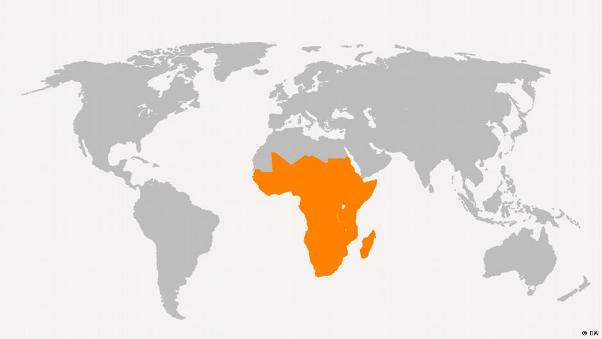Climbing over the great firewall of Chinese censorship
Oliver Linow, Technical Distribution at DW
Censorship is not the same everywhere you go. Circumvention solutions that work in one place may be completely ineffective elsewhere. It takes constant, often local, innovation to keep up with the forces that prevent people from accessing information. It is a constant struggle with one side driving the other forward.
While DW has seen success in overcoming censors with circumvention technology like Psiphon in Iran, these types of solutions have been less successful in China.
When you look at China, you might conjure up images of millions of potential Internet users who are just waiting to have access to censored websites like Facebook and YouTube. But that’s not 100 percent true. There is an enormous range of alternatives that are tailored to the Chinese market, uncensored. And a large portion of the population is satisfied with what the “Chinese” Internet offers – and that includes news websites. However, there are still people out there who are longing for access to unfiltered information – and that’s where these circumvention solutions come in.
The secret to overcoming perhaps the world’s most virulent censorship regime is a technique called collateral freedom, which is being implemented by the China-based organization Greatfire. The technique works by leveraging global cloud infrastructure and having a website use the same cloud-based domain as a website that is deemed indispensable by the authorities. For example, by using the same Microsoft Azure cloud servers as major Chinese companies, if you block one, you have to block them all, and that means political trouble in an age of Internet-driven economic growth.
It’s extremely important to us to create an easy way to access the DW website, despite the censoring of content. It shouldn’t be necessary to install special programs or applications on your computer or smartphone. With Greatfire, we have found an easy solution. Even though it requires users to enter a slightly-modified URL than is used elsewhere around the world, it ensures a completely “normal” way to access information and content with a familiar tool: The Internet and a web browser.
How to unlock the full potential of online video even on low-quality networks
There is a high demand for quality media in Africa but in many places network infrastructure cannot keep up. A positive aspect of this technological disparity is that it promotes the development of alternative services, which provide access to media by getting around network deficiencies. Launched in January 2012, Tuluntulu (which means stream in Zulu) opens the floodgates to a reservoir of uninterrupted television streams on mobile devices– even in locations with low-bandwidth networks.
Now DW’s flagship English channel will be included Tuluntulu catalogue. This new partnership will bring world-class programming and information to a hard-to-reach audience. With partners on board like DW, no one has to miss out on quality content because of technological deficiencies.
Tuluntulu works by using Adaptive Real-time Internet Streaming Technology (ARTIST), which allows content to stream at low data consumption levels. The service was developed specifically as a platform for the technology. The company claims that ARTIST technology can provide unbroken streaming video at the low broadband speed of 30kbps adding that no other service can provide video under 100 kbps. With its wide-selection of networks, Tuluntulu is truly a breakthrough for mobile media in Africa. The service is free to download right now for iOS or Android devices.
This is only the beginning of developing these technologies and DW is an integtral part of what makes them so important in providing information to those who need it in a place they couldn’t find it before.
Market roundup: January 2015
Online
DW news in 12 languages are included in the newly-launched MSN news apps. This makes online content from DW not only available on all Windows mobile handsets and msn.com, but also expands the reach to iOS and Android devices.
Asia
Onneshon is now available in India and Bangladesh. The science show that is broadcast in Bengali will be made available in Eastern India on Doordarshan Bangla (DD Bangla).
Europe
A weekly version of Euromaxx is now being produced and broadcast in Ukrainian. The new adaptation of the classic show is being produced in cooperation with ZIK-TV, with which DW has been working with since the beginning of 2014. ZIK-TV also rebroadcasts Geofaktor and Focus on Europe.
South America
The culture magazine Camorote.21 is now being broadcast nationwide in Brazil by TV Brasil. The public broadcaster is part of the EBC (Empresa brasileira de comunicação) and focuses on informational and cultural programming.
Examining the future of print
 There is a storm raging around the book, the Internet and the way we think. This special is there to examine what value the book will retain in the digital age. DW is taking a unique look at the printed word in the new special Gutenberg in the Cyberstorm. With in-depth analysis of the value of books in Europe and in the United States, DW has produced a 26-minute show which will be broadcast on December 20 as part of Arts.21, as well as an online special that breaks down the different issues at hand. The team interviewed experts like Jeff Jarvis and Marc Elsberg, who describes how data impact society and how apps can alter our behavior. The project lead them from Seattle to Los Angeles and New York, and Mainz to Wiemar, Munich and Berlin.
There is a storm raging around the book, the Internet and the way we think. This special is there to examine what value the book will retain in the digital age. DW is taking a unique look at the printed word in the new special Gutenberg in the Cyberstorm. With in-depth analysis of the value of books in Europe and in the United States, DW has produced a 26-minute show which will be broadcast on December 20 as part of Arts.21, as well as an online special that breaks down the different issues at hand. The team interviewed experts like Jeff Jarvis and Marc Elsberg, who describes how data impact society and how apps can alter our behavior. The project lead them from Seattle to Los Angeles and New York, and Mainz to Wiemar, Munich and Berlin.
Find out what what the executive producer and director have to say about the topic or read more about it here.
Market roundup: December 2014
South America
 For the third time, DW Akademie has awarded its ¡Investiga! along with the Universidad del Norte in Bogota, Colombia. The prize for journalistic excellence is supported by CdR – an independent association of journalists in Bogota. This year, three pieces of research were presented, which all had to do with the topics of “peace, conflict and region”. David Gonzalez project about the murdered journalist Luis Eduardo Gomez and his murdered son was the winner of the ¡Investiga! this year. Alfonso Hamburger took second and Felipe Motoa placed third. As the contest’s winner, Gonzalez will be flown to Berlin to take part in a workshop, as well as going to Bonn to work side-by-side with online journalists in DW’s Spanish department.
For the third time, DW Akademie has awarded its ¡Investiga! along with the Universidad del Norte in Bogota, Colombia. The prize for journalistic excellence is supported by CdR – an independent association of journalists in Bogota. This year, three pieces of research were presented, which all had to do with the topics of “peace, conflict and region”. David Gonzalez project about the murdered journalist Luis Eduardo Gomez and his murdered son was the winner of the ¡Investiga! this year. Alfonso Hamburger took second and Felipe Motoa placed third. As the contest’s winner, Gonzalez will be flown to Berlin to take part in a workshop, as well as going to Bonn to work side-by-side with online journalists in DW’s Spanish department.
DW’s magazine about culture and the arts that was developed for Portuguese-speaking audiences has now been taken on by a new partner. Viewers throughout Brazil can now tune in to Camarote.21 on the Canal Futura. Part of the GLOBO media group, it’s the first, private TV channel in Brazil that exclusively broadcasts educational content. Canal Futura reaches 66 million households nationwide in Brazil.
Asia
Okto, Singapore’s public broadcaster, will is including Arts.21 and Euromaxx Highlights into its lineup. Okto is available nationwide in Singapore and due to its availability on platforms like Singtel and Starhub, is one oft he most popular in the country.
Shan Cable Network and Global Cable Network in Pakistan are now broadcasting DW’s English channel. These new partnership deals will make DW available in an additional 105,000 housholds.










Feedback